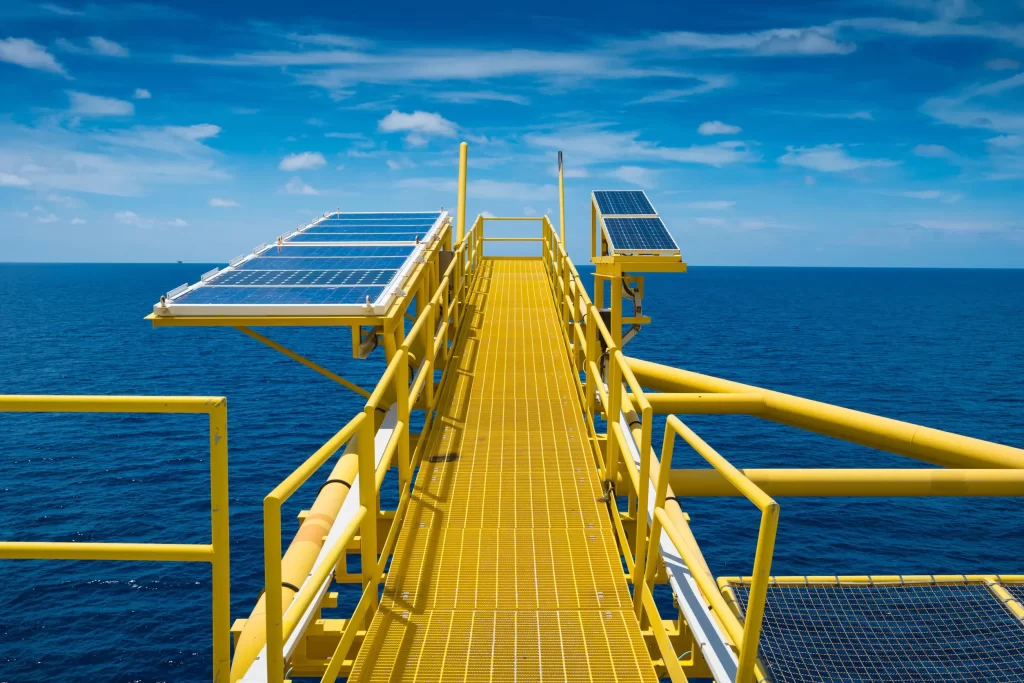The oil and gas industry is experiencing a technological transformation with new advancements every year. It’s one of the largest industries in the world, with demand growing every day. The need for large-scale, cutting-edge innovation is high.
What technologies are driving this innovation most? These four advancements are at the forefront of today’s evolving oil and gas sector. Here’s how they’re shaping the future of the industry and what to expect down the road.
Automation
Automation is fundamentally changing the landscape of virtually every industry, from manufacturing to construction. Oil and gas are no exception. Automation can drastically increase safety, productivity and efficiency on drilling rigs.
Studies suggest that an automated rig could significantly reduce its full-time staff, removing employees from high-risk positions. Additionally, automation could open doors to new drilling sites that would otherwise be too complicated to operate, specifically smaller, more cramped areas. Automated drilling also reduces liability since far fewer people are on-site, and human error is less likely to cause safety incidents.
Some may wonder whether automation presents its own risks to the industry. For example, what happens if the equipment fails? The solution to preventing such an incident comes from other technological advancements in oil and gas. Automated systems can be remotely controlled and monitored 24/7, enabling incredible performance optimization and consistent inspections.
Industrial IoT
The Industrial Internet of Things is the key to unlocking the full potential of automation and artificial intelligence (AI) in oil and gas. It combines the capabilities of these technologies with the knowledge collected by data and analytics, functioning as a sort of industrial central nervous system.
The Internet of Things describes the growing network of physical devices connected to one another through the internet. Industrial IoT, or IIoT, focuses on devices specifically created for industrial applications. In the case of oil and gas, this includes items like sensors that monitor an automated drilling rig’s performance.
IIoT devices have a wide range of uses in the oil and gas industry. For example, an automated drilling rig could be fitted with a web of connected sensors that automatically detect irregularities in performance or activity. This could signal to rig workers that maintenance or inspection is needed, allowing for predictive maintenance rather than expensive repairs when equipment fails.
Additionally, these sensors can collect significant amounts of data over time, enabling highly precise inspection of a drilling rig’s long-term performance. This also makes it possible to find specific areas needing optimization, repair or replacement.
IIoT devices can even be used for employee safety. The construction industry has been seeing many IoT safety products come to market over the last few years, and the same trend could also take hold in oil and gas. These devices include smart vest badges with an emergency alert button, smartwatches and even boots.
Data and Analytics
If IIoT is the central nervous system of the advanced oil and gas industry, data and analytics are the brains. It’s so crucial to the future of oil and gas that it has even been described as “transforming operations, boosting agility, and providing a more sustainable and cleaner environment” by industry knowledge leaders. While automation and IIoT can enable incredible advancements and gains for companies, the knowledge and insights provided by data and analytics are what make it possible.
Data can be collected efficiently through the use of IIoT devices, and analysis software can be used to help distill it into actionable insights. This can reveal information about operations and efficiency that would have otherwise been unattainable. Even beyond the performance of physical equipment, data and analytics can optimize everything from budgeting to resource utilization. It can even help oil and gas companies expand by identifying ideal drilling and construction locations.
Artificial Intelligence
Data and analytics power one particularly valuable technology: artificial intelligence. Once only possible in science fiction, artificial intelligence is transforming countless industries worldwide, including oil and gas. AI builds on the former three technologies and develops their capabilities and value further by putting independent intelligence behind them.
For example, an autonomous drilling rig could be run even more safely with an AI watching over things. It could process all the data collected by IIoT sensors in real-time, autonomously detecting abnormalities and alerting the appropriate rig workers. This goes a long way in boosting safety on a rig and giving workers peace of mind.
AI can even be applied to security. Live security camera feeds allow it to detect suspicious or unusual activity with 24/7/365 scanning, even when no employees are on-site. This can greatly improve site safety with little effort, making it an ideal addition to a company’s arsenal.
AI has applications on the corporate side of the oil and gas industry, as well. Data analysis is a step in the right direction, but AI maximizes its potential. Industry leaders have used it to help predict future trends and optimize spending. One oil and gas company even successfully used AI as a 24/7 helpline resource for field employees.
The growth of AI over recent years has increased the capabilities of AI chatbots through the use of natural language processing (NLP). This and other key functions rely on the collection of large quantities of data to train the AI and improve its performance. All the technological advancements occurring in the oil and gas industry are interconnected and lead to more innovations.
The Future of Oil and Gas
The oil and gas industry is crucial to the global economy and the daily lives of billions of people. Technology is vaulting it into the future, creating a more productive, efficient and safe industry. The benefits of these advancements are wide-ranging and reach everyone from high-ranking executives to the consumers who rely on these valuable resources. Optimizing the sector with the help of tech can truly revolutionize oil and gas, powering the future in a smart and reliable way.

